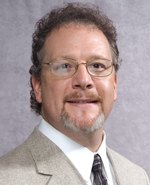Andrew Schmutzer: A Theology of Sexual Abuse: A Reflection on Creation and Devastation
Andrew J. Schmutzer, “A Theology of Sexual Abuse: A Reflection on Creation and Devastation” JETS 51:4 (Dec 2008).

Andrew J. Schmutzer, Professor of Biblical Studies at Moody Bible Institute (Chicago, IL).
In what follows I plan to intersperse a review of Andrew J. Schmutzer’s “A Theology of Sexual Abuse: A Reflection on Creation and Devastation,” with my own reflections as both a survivor of sexual abuse and an ordained clergyman. Salient points from Schmutzer’s article will be highlighted and then a few suggestions will be offered as to what the church can do in response toward healing the devastating effects of sexual abuse within and without its ranks.
I would like to begin with a few disclaimers: first, I am a survivor of sexual abuse; I am a survivor, not a victim, and these words are chosen with a purpose so as to emphasize the continual effects of past actions laid upon me by someone who shared (roughly) half of my genetic code. Second, I find the church to be woefully inadequate, currently, in addressing its members who have incurred sexual abuse in their past. Third, I contend that my experience of sexual abuse has profoundly impacted the trajectory of my life; although recognizing that all analogies are inadequate in the end analysis, one of the illustrations that I use to liken sexual abuse unto refers to the common game of billiards. When one plays billiards, the way that one initially hits the cue ball is the most important aspect. If one miscues, the cue ball will continue to go forward (or progress), but the initial target will invariably be missed; the trajectory of its path is altered, and the initial mistake has profound consequences on its entire voyage until it finally comes to rest. Sexual abuse functions, in many ways, just like the miscue on the billiard ball. Indeed, the survivor may continue to go forward, but they will invariably miss the initial target of their lives, with the effects of the sexual abuse permeating their entire disposition until they finally come to rest (in the grave).
The failure to support victims of sexual abuse will continue to imperil the church.
Schmutzer correctly notes that healing for victims of abuse seeks to mend profound “fractures” within the survivor and the abusing party. As Schmutzer intimates, the traditional reconciliation paradigm may not apply to sexual abuse. I would like to more boldly state that the abused often has no desire for reconciliation with the offending party; they do not hold grudges but simply cut off that area of their lives, looking to move forward. Whether this is wrong or right, I am sure opinions exist on both sides. However, I believe that until someone is sexually abused, they have no place to speak. In sexual abuse, forgiveness may be granted, but reconciliation is usually stymied due to the deep erosion of trust and respect. It is not that one dislikes the perpetrator; the survivor is, if you will, merely indifferent to their existence. Personally, I have no desire for “reconciliation;” I just want to move onward, and that should be respected. I sense that other survivors would agree this assessment.
Category: Ministry, Pneuma Review, Winter 2010


